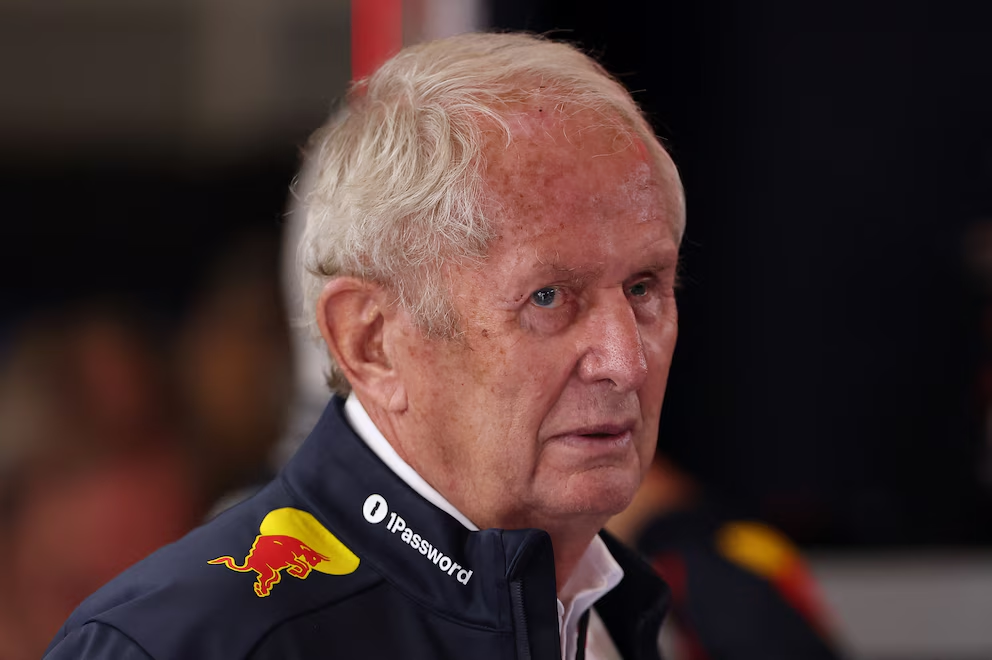When discipline becomes negotiation, even talent begins to look temporary.
Suzuka, October 2025.
In the fading light of Japan’s Grand Prix weekend, the paddock atmosphere turned dense with speculation. Helmut Marko, Red Bull’s veteran advisor, broke the silence with a remark that rippled through the Formula 1 world. His message about Yuki Tsunoda was blunt: “Speed alone is not enough.”
Behind that sentence hides more than a performance critique; it is a signal of how the Red Bull structure recalibrates loyalty, hierarchy and marketing within one of the sport’s most demanding ecosystems.
According to insiders from Motorsport Magazin and Sky Deutschland, Marko’s assessment came after months of internal frustration over Tsunoda’s inconsistency and emotional outbursts on the radio. Within the Red Bull orbit—an organization built on measured aggression and corporate precision—such volatility challenges the team’s internal culture.
Tsunoda, who joined Formula 1 in 2021 as part of the Honda Academy, has shown flashes of brilliance, particularly in qualifying sessions. Yet the overall balance sheet of 2025 paints an uneven picture: sporadic points, several collisions, and limited strategic adaptability compared with peers such as Liam Lawson and Daniel Ricciardo. The contrast has not gone unnoticed in Milton Keynes, where Red Bull’s management begins to view the Japanese driver as a short-term commercial asset rather than a long-term competitor.
Marko’s statement did not emerge in a vacuum. Since Honda’s gradual withdrawal from Formula 1 as an engine supplier, Red Bull’s Japanese alliance has shifted from technical to symbolic. Maintaining a Japanese driver once served as a gesture of continuity; now, it represents a business-to-brand dilemma. “We owe Honda much, but our grid choices must follow performance, not sentiment,” a Red Bull strategist told the Financial Times on condition of anonymity.
The situation intersects with the internal restructuring at Visa Cash App RB, the team formerly known as AlphaTauri. Its rebranding was intended to modernize the junior program and align it more closely with Red Bull Racing’s commercial priorities. In that new logic, Tsunoda’s seat is under audit. Sources near the Fédération Internationale de l’Automobile (FIA) suggest that contracts beyond 2025 remain open-ended pending sponsor negotiations and final driver evaluations at the Abu Dhabi season finale.
From a technical standpoint, Red Bull engineers acknowledge Tsunoda’s raw pace but criticize his feedback loops and tire management under pressure. The Peterson Institute for Sports Analytics, which recently published a study on performance volatility, lists Tsunoda among the top five drivers most affected by cognitive overload during high-stress laps. That data resonates with the Austrian team’s view that consistency, not charisma, defines long-term value.
Yet Marko’s comment also exposes the human tension at the heart of modern Formula 1: young drivers entering a system that quantifies everything except emotion. Tsunoda, at 25, embodies that paradox. His temperament—once celebrated as authenticity—now risks being framed as liability. “You cannot engineer calmness,” said a former Red Bull psychologist quoted by the BBC Sport Forum. “You can train reaction time, but you cannot download maturity.”
In Japan, the reaction was immediate. National media portrayed Marko’s statement as a cultural affront, reviving the debate on how European teams perceive Asian drivers. Commentators at NHK World News noted that Tsunoda’s struggle mirrors the challenges faced by Takuma Sato two decades earlier: immense talent constrained by institutional impatience. For Japanese sponsors, particularly Honda Jet and Yamato Logistics, the controversy generates reputational risk at home but global visibility abroad—a dual outcome that corporate strategists call “profitable tension.”

Meanwhile, in Latin America, motorsport analysts draw parallels with the case of Sergio Pérez, another Red Bull driver whose future has been questioned despite competitive results. The Universidad de Buenos Aires Institute for Sports Economy interprets these patterns as evidence of Red Bull’s “rotational Darwinism”: a model where commercial and psychological pressure function as selective mechanisms.
Inside the paddock, the implications are practical. If Tsunoda is replaced, Red Bull’s junior program could re-introduce Lawson or test emerging talent from its European karting network. The vacancy could also open negotiations with external drivers, depending on how the 2026 engine regulations reshape team partnerships.
Still, amid the corporate narratives, the human dimension persists. Tsunoda’s supporters remind critics that his journey from Sagamihara to Formula 1 required defying a talent pipeline dominated by European academies. In a sport obsessed with milliseconds, his presence represents cultural pluralism—a reminder that speed can also carry identity.
Marko’s sentence, though framed as evaluation, has become verdict and provocation. It forces Red Bull to define what kind of team it wishes to be in an era where marketing, data and human unpredictability collide. The driver’s future remains open, but his case has already transcended the garage.
In the end, Formula 1 remains a theatre of precision where empathy rarely fits the telemetry. Yuki Tsunoda stands at the intersection of potential and politics, racing not only against rivals but against the patience of an empire built on control.
Hechos que no se doblan. / Facts that do not bend.

